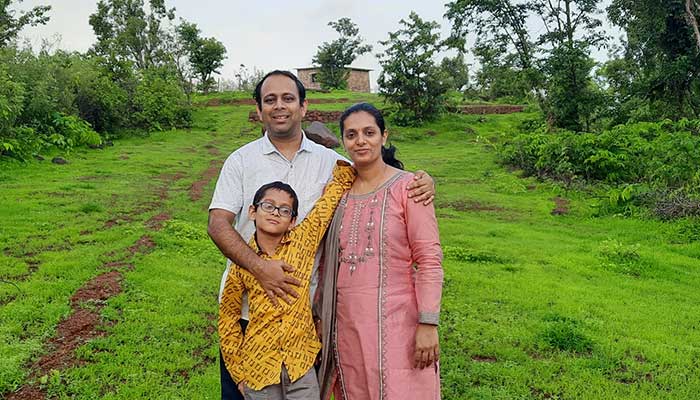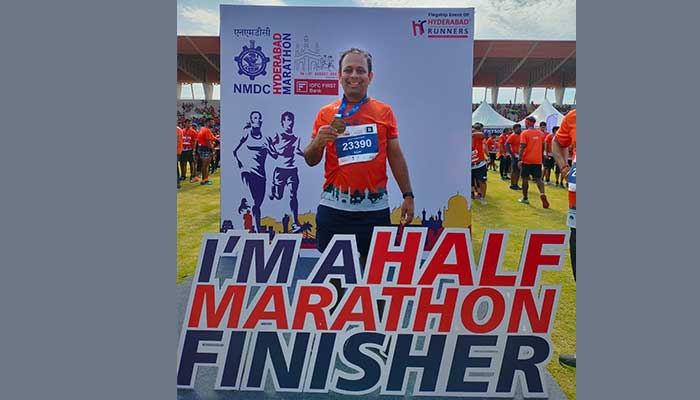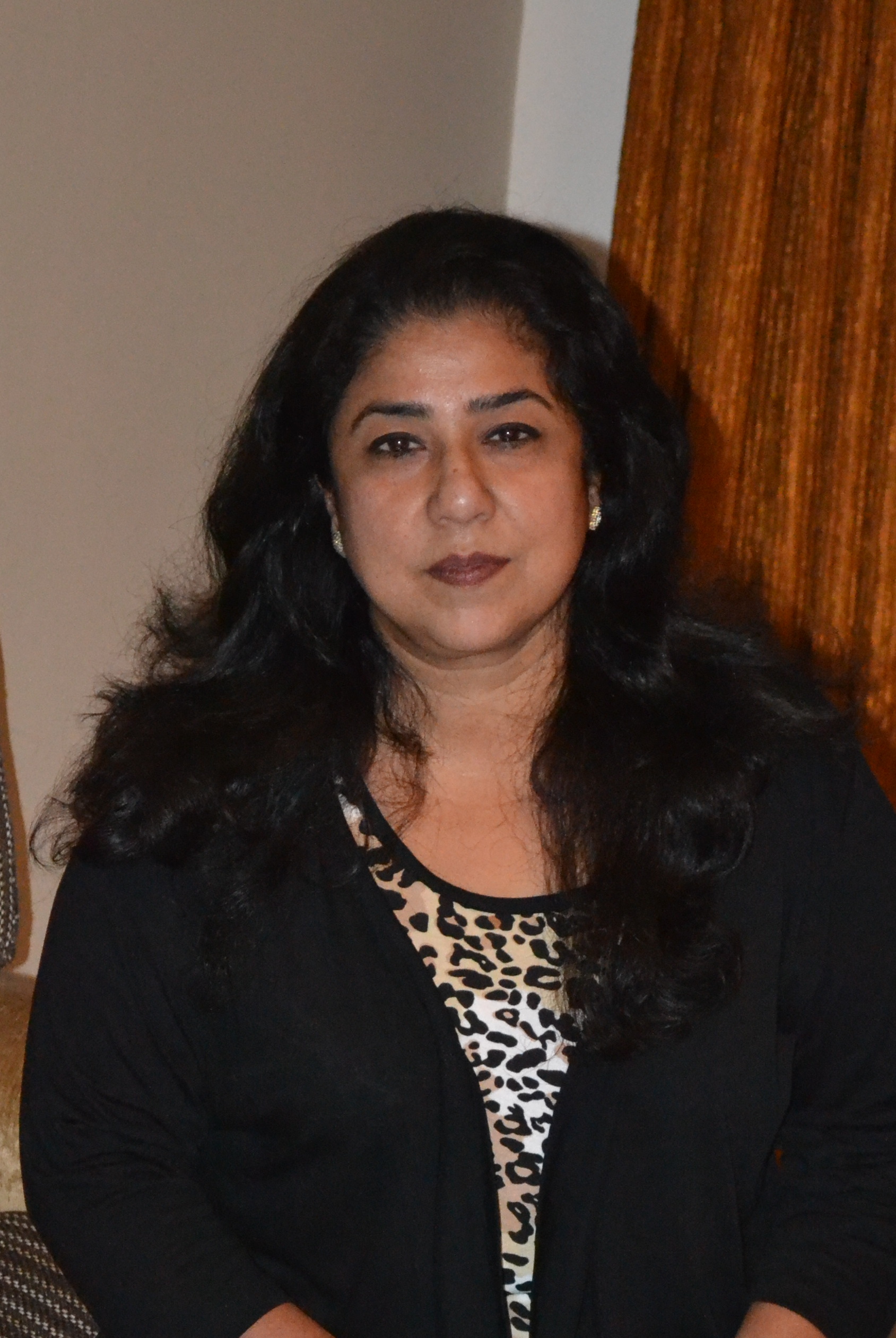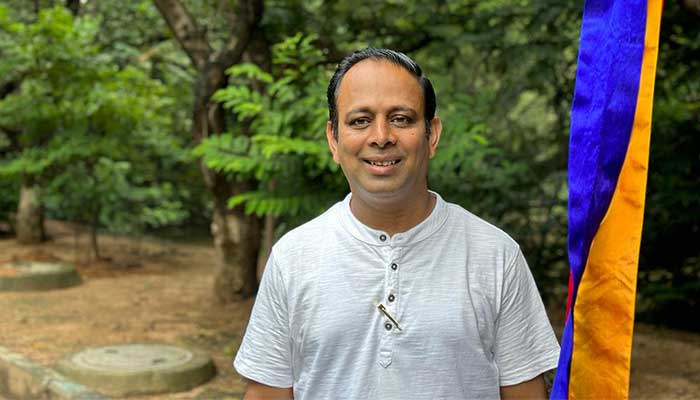Ethical AI, fitness training and chai pe charcha with research students is Sujit Gujar’s Ikigai, that which puts a spring in his step and sparks his joy. The Associate Professor and CA Technologies Faculty Chair at IIIT Hyderabad uses Game Theory, Mechanism Design, Machine Learning and Blockchain to build next generation AI systems.
Here’s a sketch on how Sujit Prakash Gujar’s world works. To channelize his son Yuven’s youthful energy, Sujit enrolled him for athletics training at the nearby Gachibowli stadium this year. He then realized that the two-way commute time was better utilized in running laps around the track with Mayank Chawla. At some point, they upped the ante and started practicing for a marathon. The upshot of this was a few months later, they had successfully completed their first half marathon on August 27th at Hyderabad.
He brings this rigor to his research work at IIIT Hyderabad’s Machine Learning Lab. As the world becomes more decentralized and federated learning gets more popular, how is data privacy of individuals and organizations protected? Previously a post-doctoral researcher with Prof Boi Faltings, EPFL, Lausanne and a senior Research Associate with IISc.’s Prof. Narahari, Sujit brings a sweet mix of industry experience and academia to his study of Ethical AI; building theory for real-world AI applications and making distributed systems fair, manipulation-proof and ensuring data privacy.
‘In theory there is no difference between theory and practice – in practice there is. This Yogi Berra quote on the EPFL cafeteria wall always fascinated me, he muses. “Some practitioners develop innovative products that don’t have solid theoretical backing. What I do is to develop theories for precise problems. I’m a theoretician for practitioners and practitioner for theoreticians”.
Enriching pit stops on the fast track to IIIT Hyderabad
A product of the esteemed College of Engineering Pune, a 150-year-old institution with stalwart alumnus like M. Visveswaraya, Sujit completed his B.E in Electronics and telecommunication, working with friends on hardware designing and VLSI. To his bad luck (which later turned to be good luck), the Y2K bubble had burst and serendipitously, instead of joining Motorola he would join PACE Soft Silicon, a startup as a Software designer. With his parents’ encouragement, he enrolled at Indian Institute of Science (IISc) for his M.E in computer science, snagging the highest grade for his Masters project. “I was fortunate to work with renowned cryptographer Veni Madhavan on cryptography and network security”, he notes.
It was during this time that he was introduced to Game Theory, that had a large component of Mathematics, a favorite topic since childhood. “Later, it was my advisor and role model Prof Y Narahari who motivated me to pursue Ph. D in Automation, Game Theory and its applications. Initially, I worked on EconCS topics that later progressed to designing algorithms for these economic mechanisms. I also started working on the interface of machine learning and Game theory” says the recipient of the Infosys Doctoral Fellowship and Alumni Medal of IISc for the Best Doctoral Thesis “. At that point, it was a coin toss whether to work in academics or industrial research.
He had concurrently worked with the Xerox Research Center at Bangalore. While it was a great couple of years, he realized that if he really wanted to work on deep fundamental problems, it would have to be in academics. “Teaching was in my blood with my father who had a side hustle as a teacher in the evenings. With academics, you are always working with the younger generation and the young vibe is energetic”, he admits.
On Prof. Narahari’s recommendation, Sujit spent 2 years at EPFL Lausanne in Switzerland, working with Prof Boi Faltings as Post-doctoral researcher. Around the time that he was scouting for a good faculty position in India, Prof. PJ Narayanan was also looking for promising candidates. On Prof Narahari’s advise, he met Prof PJN. After an exciting conversation and egged on by his friends, IIITH alumni Avinash Sharma (then faculty at IIITH) and Saras Chandra, Sujit would join IIIT Hyderabad in 2016.
Collaborations in Federated Learning and Ethical AI
Sujit Gujar’s team has several ongoing collaborations in India and abroad. For a multi-organizational project with MeitY, Sujit’s team is developing a unified blockchain framework and contributing theoretical research support especially in privacy, scalability and game theoretic aspects. He is PI for a collaborative project between SERB and IIT Ropar on `building fair federated machine learning’, and start-up KoinEarth, “where we used game theory to develop ecommerce blockchain and egovernance, a topic that is close to my heart”.
“I and Dr Naresh Manwani are collaborating on client data privacy in federated settings for JP Morgan Chase.” Sujit explains that in federated learning, a decentralized method of machine learning, everybody trains data privately on their smaller models. “I aggregate these models to make a better model”. For a collaboration with BEL, a multi-nodal early warning system for enemy insurgencies is being designed, with combat strategies from multiple base stations, using game theory. Outside India, Sujit’s collaborations continue with Prof. Haris Aziz from UNSW, Prof Boi Faltings from EPFL, Prof. Pan Hui and Dimitirios Papadopoulos from HKUST, Dr. Dimitris from Ireland, Dr. Reza Hadi Mogavi (University of Waterloo) and Prof. Emmanuel from INRIA”.
Sweet success measured in publications and awards
Using combinations of game theory with machine learning, and in collaboration with TCS and Dr. Praveen of IIITH, Sujit’s team developed Vidyut Vanika that has won awards at PowerTAC 2018, 2021 and 2022. He has over 90 publications in premier journals like Artificial Intelligence Journal (AIJ), Journal of Artificial Intelligence Research (JAIR), IEEE IoT, Annals of Mathematical AI and at Premier Conferences AAMAS (21), AAAI (6), IJCAI (5), INFOCOM, WINE, ECAI, ECML, UAI and HCI Games 2023. Recently his Papers got accepted at SAGT’23, IEEE ICBC’23 and won the Springer best paper award PRICAI’22. In his growing repertoire of published papers was one on Civic Crowdfunding in AAAI 2023 and Building Ethical AI in DAI’21. “We might walk together, but I run faster won the Best Poster Design Award at AAMAS’21. “Dr. Shweta Jain and I published multiple papers on Peak Reduction in Smart Grids that were accepted at IJCAI’23, AAMAS’23, AAAI’20 and EMAS’23”, reveals Sujit who has contributed chapters to three books and has several patents to his name.
Going the extra mile as a life goal
The Pune born and bred youngster cycled daily to Maharashtra Mandal, a reputed Marathi-medium school with a diverse student population from different economic strata. It was here that he was exposed to competitive events, winning Maths Olympiads and topping state level exams including the Parangat state award of Maharashtra. His father, a self-made businessman taught him everything he knows about hard work and success. “My mother inculcated a love of culture in us with stories from mythology and ensured that we grew up as good citizens”. In the past, Sujit was a regular cricket player at the faculty quarters, till he was bitten by the marathon bug.

He has produced a prodigious amount of work and still has time to train for a marathon, thanks to his belief that “if you love the things you do or are interested in achieving something, your entire ecosystem will work for you. To master any sport or subject, you should spend more time on building your body for it along with practicing that sport”. Shraddha, his wife, whose support in general is invaluable to him, ensured the nutrition and diet aspect and the Hyderabad Runners helped with bi-weekly fitness training at Botanical Gardens.
Atomic Habits for incremental success and Bonding over tea breaks
Sujit has a few rituals in place that have stood him well, over the years. For instance, twice a day, he takes a tea break with his research students. “My overworked students need those 15 minutes over tea, to unwind and discuss technical and non-technical topics, outside our research”.
His secret mantra for keeping calm and yet blitzing through his day is this simple habit. Plan your week and budget ample time for leisure activities like movies, hanging out with friends with a 10% buffer for eventualities. “In my free time, I listen to OG Bollywood tunes especially by Kishore Kumar and prefer soft and mellow over adrenaline-pumping beats. We travelled a lot around Europe, during our time in Switzerland. Now, I budget time for at least 2 vacations in a year and am looking forward to putting our new mini SUV through the paces on our road trips”.
Why is our good quality research and fine talent not reflecting in our rankings? he asks. This fact became glaringly evident during his summer Research Internship in Harvard University under Prof David C Parkes of the Harvard EconCS Group. “I realized that my colleague James’ notes on a meeting was far more precise and quicker than mine. Why are they ahead of us in research and rankings? That is because documentation is a way of life and that’s the edge that they have over us. We don’t need to reinvent the wheel. I believe that the differentiator is that we need to be more organized and documentation is the key, that is now standard operating procedure for my students!”
“That’s the ethos that I’m trying to develop in my students. On a personal level, I would like to develop Ethical AI in a broader sense. In my non-academic wish list, I want to run a full marathon before next year and keep running”.




Next post